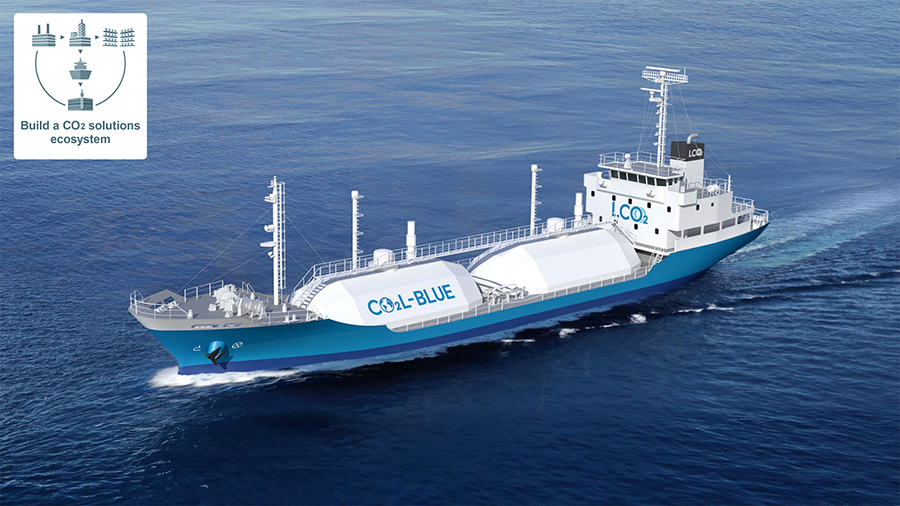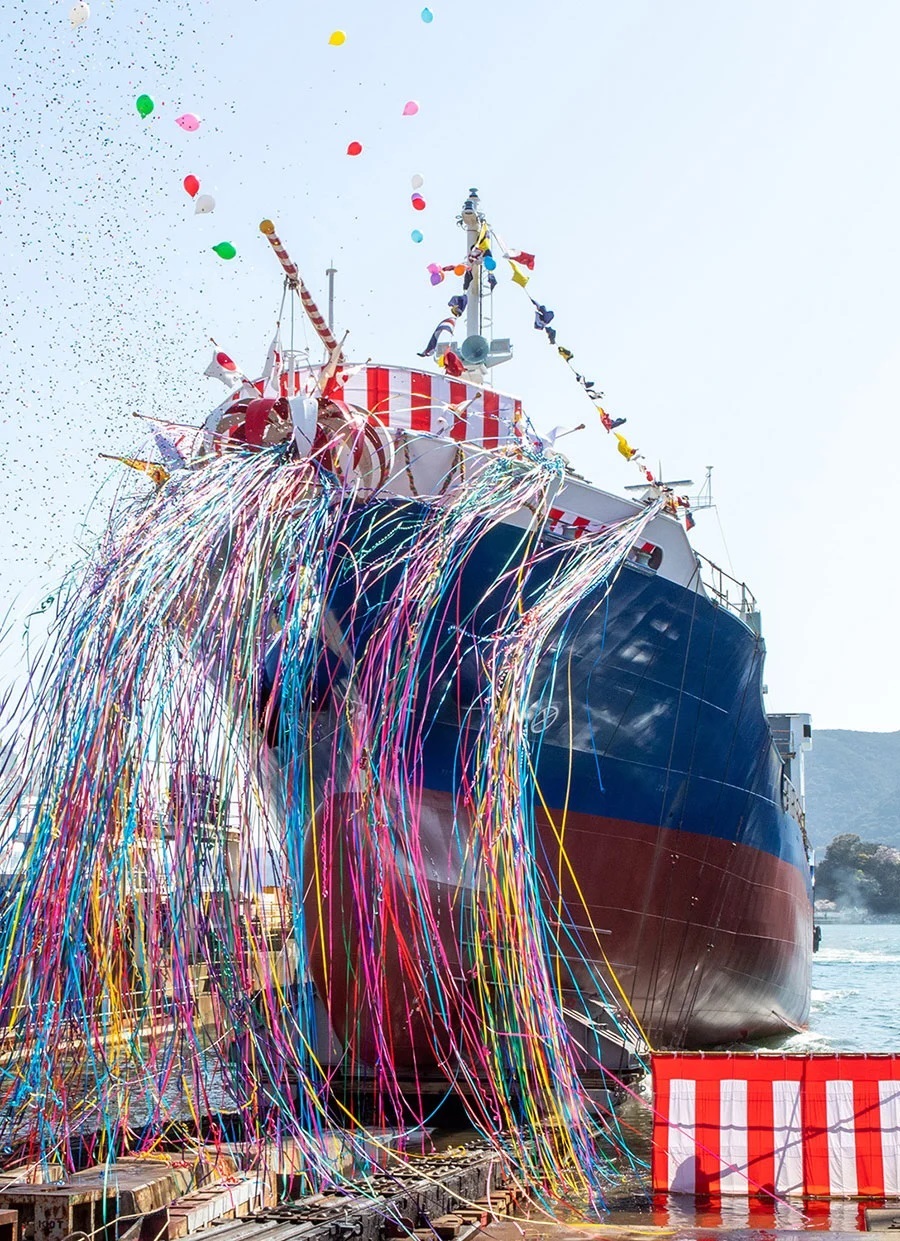Vessel for NEDO project to develop and demonstrate technologies to establish large-volume marine transport of CO2.
Construction underway, with completion and handover scheduled for the second half of fiscal 2023.
Mitsubishi Shipbuilding Co., Ltd., a Mitsubishi Heavy Industries (MHI) Group company based in Yokohama, today held a launch ceremony for a demonstration test ship for transport of liquefied carbon dioxide (LCO2), to be utilized in conjunction with initiatives by the New Energy and Industrial Technology Development Organization (NEDO) for its demonstration projects (CCUS R&D and Demonstration Related Project / Large-scale CCUS Demonstration in Tomakomai / Demonstration Project on CO2 Transportation / R&D and Demonstration Project for CO2 Marine Transportation).
The ceremony, conducted in the presence of representatives of the ship’s owner Sanyu Kisen Co., Ltd. and other partners, was held at the Enoura Plant of MHI’s Shimonoseki Shipyard & Machinery Works in Shimonoseki, Yamaguchi Prefecture.

The Engineering Advancement Association of Japan (ENAA), one of the consignees for the NEDO demonstration projects, will charter the ship from Sanyu Kisen, and install and operate the LCO2 marine tank system used to conduct research and development.
Three additional project partners, Kawasaki Kisen Kaisha, Ltd. (“K” LINE), Nippon Gas Line Co., Ltd., and Ochanomizu University, will be commissioned by ENAA to conduct R&D on the pressure control and stability of the LCO2 transported on the ship, and plan demonstration experiments, as well as develop and demonstrate technologies for safe and low-cost CO2 transport.
Mitsubishi Shipbuilding is in charge of all aspects from the ship design through construction, including the cargo containment system, applying its gas handling technologies and expertise cultivated through the construction of liquefied gas carriers (both LPG and LNG types).
Vessel's Overview:
| Registration | Japan |
| Length overall | 72.0 m |
| Beam | 12.5 m |
| Draft | 4.55 m |
| Tank capacity | 1,450 m³ |
Representatives from Sanyu Kisen, Nippon Gas Line, and “K” LINE attended the launch ceremony.
Following outfitting and sea trials, the ship is scheduled to be handed over in the latter half of fiscal 2023.

Carbon dioxide capture, utilization, and storage (CCUS) is gaining attention as an effective means of achieving a carbon-neutral society. Because the sources of CO2 emissions are often located distant from the sites selected for carbon utilization or storage, demand is expected to increase for LCO2 carriers able to transport such cargo safely and economically. Mitsubishi Shipbuilding will draw on its experience constructing this vessel to bolster its business for MHI Group’s energy transition strategy, and will develop the various technologies for LCO2 vessels necessary to establish a CCUS value chain.

MHI Group is pursuing strategic measures to strengthen its business for the energy transition. For its part in this initiative, Mitsubishi Shipbuilding, in its “MARINE FUTURE STREAM” growth strategy, has laid out a vision for the decarbonization of the maritime economy through renewable energy and the carbon cycle, along with a safe and secure society through autonomy and electrification, and is working to generate new ideas in marine-related innovation and make them a reality. As part of this effort, Mitsubishi Shipbuilding will actively pursue development and commercialization of LCO2 carriers, and as a marine systems integrator, aim to achieve decarbonization.